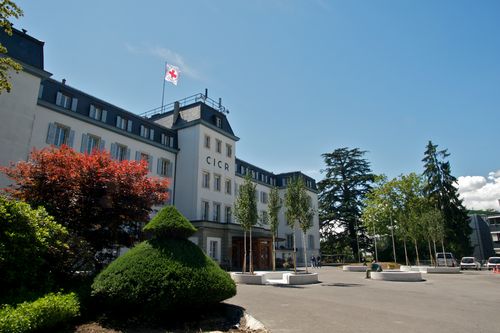
Malcolm Lucard
Cross-posted from Red Cross Red Crescent Magazine
Internal records from the ICRC’s archives concerning the conflicts of the 1960s and 1970s shed light on a decisive era for humanitarian action.
In a small room in the basement of ICRC headquarters in Geneva, Switzerland, historian Andrew Thompson methodically pours through folders full of documents — typewritten mission reports, confidential telegrams and hand-written letters — never before seen by people outside the ICRC.
“It is a process of discovery,” says Thompson, a professor of history at Exeter University in the United Kingdom. “There is a sense of expectation and anticipation not knowing what is going to be there. For a historian, it’s a bit like opening a birthday present, or like going into a candy shop.”
The ‘candy shop’ in this case is the ICRC archives, where Thompson is exploring 40- to 50-year-old records to be released to the public in January 2015 under the ICRC’s policy of making internal documents public in blocks of ten years once 40 years have passed since the events they describe.
Aside from exciting Thompson’s intellectual curiosity, these records offer a deeper understanding of conflicts going on between 1965 and 1975. In particular, they give insight into an area of great interest to Thompson, who took an early look at the records in order to pursue research on the evolution of international humanitarian law and human rights law as they pertain to the treatment of political detainees in non-international conflicts.
“I see the ICRC archive as hugely important for people thinking and writing about the past and present of humanitarian aid and human rights,” he says. “But it’s also much more than that. It’s an archive that allows for studying conflict in all its different dimensions.”
The archives are a treasure trove for historians as they contain first-hand accounts from delegates on the ground, as well as internal and external correspondence, for every major conflict during the period in question. According to Thompson, they offer a perspective not always found in diplomatic or military archives because in addition to political analysis, they show how conflict affects the lives of ordinary people on the ground. Continue reading “History in the Making: An @ICRC Interview with Andrew Thompson”








You must be logged in to post a comment.